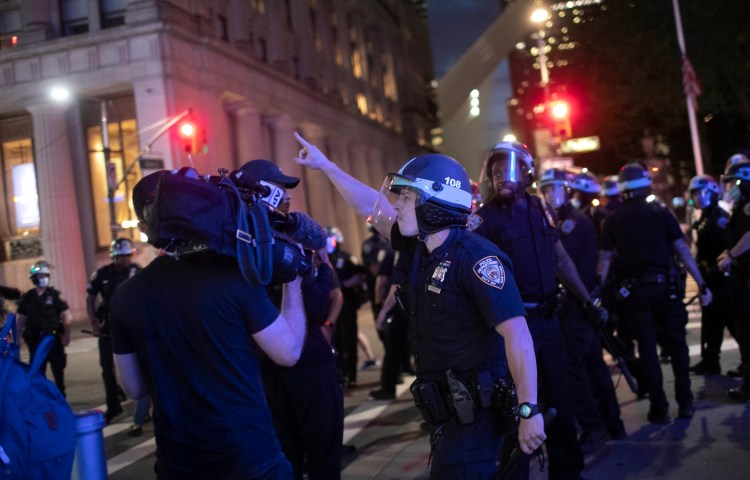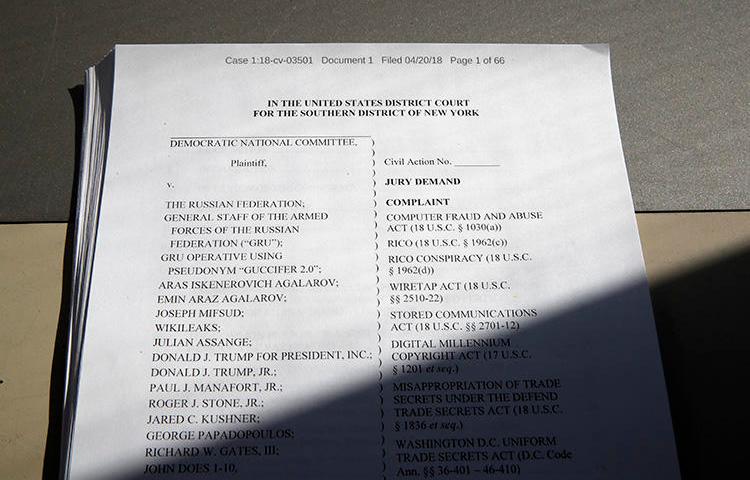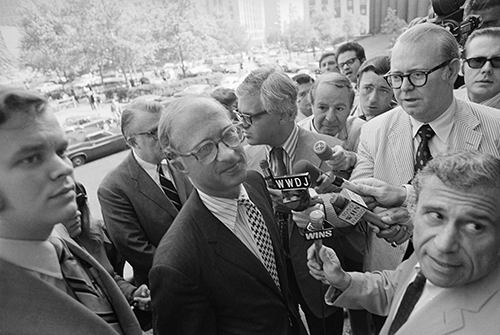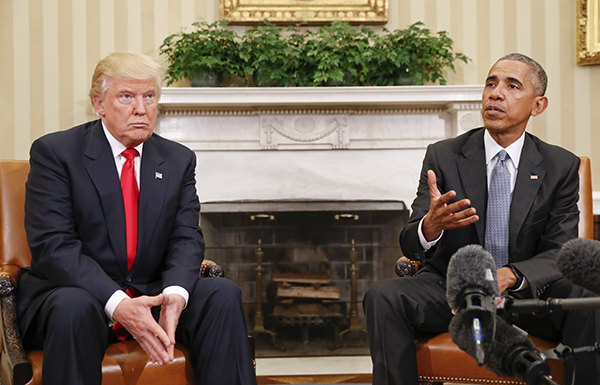
Guide to legal rights in the U.S.
The Committee to Protect Journalists is responding to the needs of journalists in the United States as they face a range of challenges, from confrontations with law enforcement at demonstrations to raids on newspaper offices, and learn to navigate what has become an increasingly hostile environment for many in the media. The following advice and recommendations are intended to give the…

Guide to legal rights in the U.S.
The following advice and recommendations are intended to give the reader a high-level understanding of the rights of a journalist when confronted by law enforcement officers while covering a protest or other political event. Given that these incidents often quickly escalate and that some – both protestors and police – do not always conform to legal…

By suing WikiLeaks, DNC could endanger principles of press freedom
In 1993, WILK radio host Frederick Vopper broadcast a conversation intercepted by an illegal wiretap and sent anonymously to the Pennsylvania radio station, in which two teachers union officials discussed violent negotiating tactics. The officials sued Vopper, arguing that he should be liable for the illegal wiretap that captured their comments. But the Supreme Court…
How US Espionage Act can be used against journalists covering leaks
Earlier this week, Department of Homeland Security Secretary John Kelly joked about Trump using a saber on the press and U.S. Senator Jim Risch told CNN the press should be questioning the Washington Post about its sources. Then, on May 16, The New York Times reported that President Donald Trump allegedly asked former FBI director…

Transition to Trump: Reporters must be allowed to protect their sources
As a new presidential administration prepares to take over the U.S., CPJ examines the status of press freedom, including the challenges journalists face from surveillance, harassment, limited transparency, the questioning of libel laws, and other factors.

Transition to Trump: First Amendment attorney Floyd Abrams on Trump’s power over libel laws
As a new presidential administration prepares to take over the U.S., CPJ examines the status of press freedom, including the challenges journalists face from surveillance, harassment, limited transparency, the questioning of libel laws, and other factors.

Appeal against Risen keeps source protection in focus
A reporter’s right to protect confidential sources, a topic of debate both in the U.S. and internationally, will undergo another round of legal scrutiny after federal prosecutors formally appealed a decision shielding journalist James Risen’s sources in a CIA leak case.

